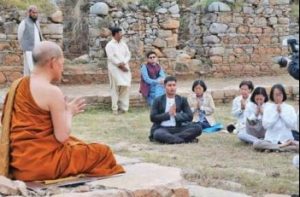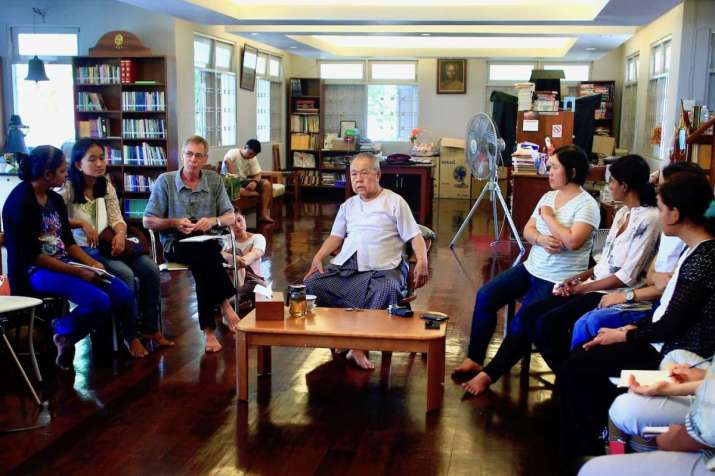
The Bangkok-based International Network of Engaged Buddhists (INEB) has announced the imminent launch of its new School of English for Engaged Social Service (SENS 2020), an annual three-month transformative learning program to nurture young Asian adults and mentor them as community leaders and agents of compassionate social change. The 2020 course kicks off in Thailand in January under the theme “Transform Your English, Transform Your World.”
“Our three-month school is a project of the resolutely non-sectarian International Network of Engaged Buddhists and its Institute for Transformative Learning (INEB Institute), led by [founder] Sulak Sivaraksa and many other notable leaders from Asia and around the world,” explained INEB Institute Academic Director Ted Mayer. “INEB brings together people from all traditions who see a spiritual as well as a structural root of our suffering, and who have resolved to work at a personal and social level to transform both.”
The SENS 2020 program will run from 12 January to 8 April at Wongsanit Ashram in Thailand’s central Nakhon Nayok Province, and includes 12 weeks of intensive instruction with a one-week midterm break. Graduates of the course become members of the SENS Alumni Network, which offers ongoing support and follow-up training.
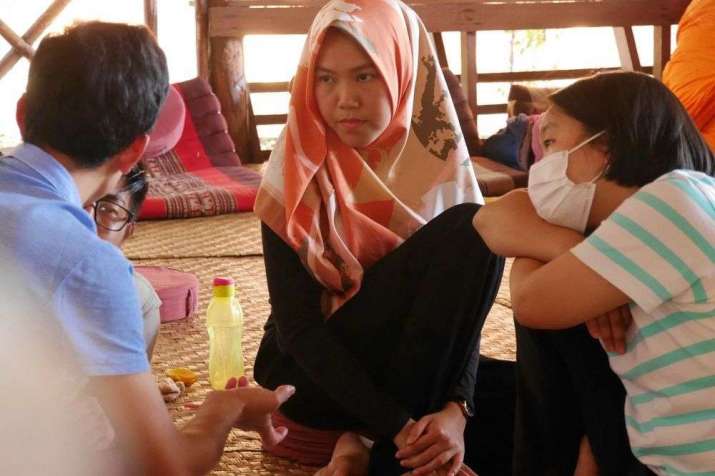
“INEB’s School of English for Engaged Social Service for 2020 has once again gathered an outstanding group of students for our upcoming course that begins 12 January,” said Mayer. “Six of our students have already received full funding to join us for what is essentially a three-month retreat from everyday life to do the kinds of transformative work that INEB has supported for many years. Eleven students still need partial or full funding to be able to join us.”
The SENS project was developed with the objective of creating a model English language program to be shared, encompassing socially conscious language learning in a cooperative environment. The course allows the rapid and successful mastery of task-specific language skills, in line with INEB’s aim to nurture personal growth and social engagement to contribute to peace, understanding, and sustainability at a global level.
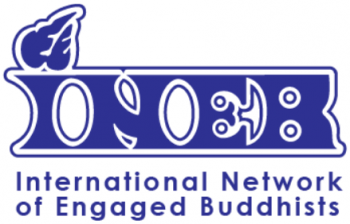
“SENS was designed to be a place for learning English as a tool for leadership, self-cultivation, and social transformation. It is now a three-month course that takes place annually from January–April at the Wongsanit Ashram near Bangkok,” Mayer observed. “It is aimed primarily at young adults in Asia who have demonstrated a commitment to work for the wider common good, and who would benefit from having higher English language skills.”
The INEB Institute was established with the intention to found a model of higher learning integrating personal and social-structural transformation in its study programs. Infused in the tradition of the socially engaged Buddhism promoted and practiced by INEB, the institute’s stated purpose is to help young people rediscover their fundamentally interdependent nature while developing the skills needed to help them become agents of genuine social change. The institute’s programs are designed to integrate new practices and learning strategies that cultivate peace and reconciliation, environmental healing, alternative education, sustainable economics, and the capacity for spiritual growth and leadership.
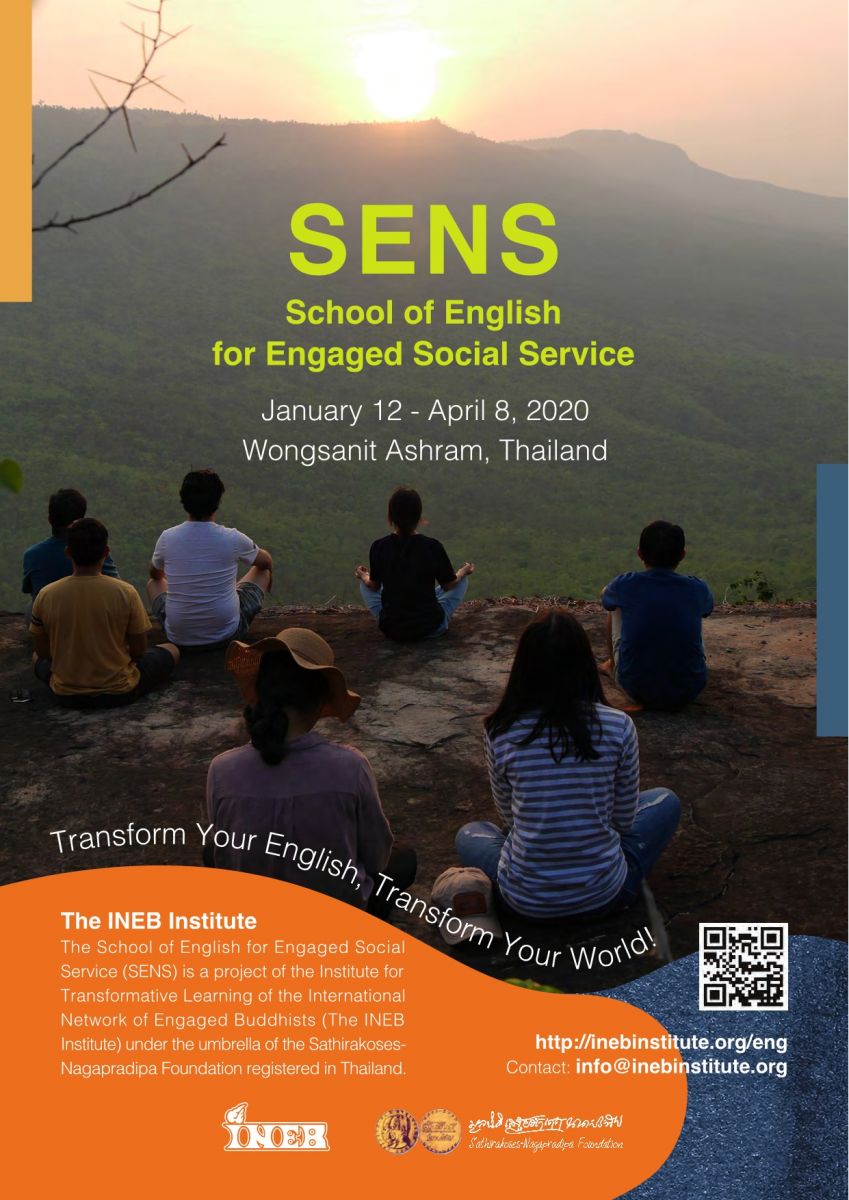
“We have run a program called the School of English for Engaged Social Service for three years now on behalf of INEB,” Mayer told Buddhistdoor Global. “In that program, we bring together activists and those who work in service to society to develop their English skills. But in addition, we do much work on developing their capacity for self-awareness and mutual support, and at heart it’s a course in fostering leadership among young Asian adults so that they can successfully lead from a place of being spiritually grounded, and with sufficient understanding to meet the challenges of our era.”
The INEB international Buddhist community was established in Thailand in 1989 by the prominent Thai academic, activist, and social critic Sulak Sivaraksa and a group of Buddhist and non-Buddhist thinkers and social activists. It was developed with the aim of connecting engaged Buddhists around the world and promoting understanding, cooperation, and networking among inter-Buddhist and inter-religious groups to address global issues, such as human rights, conflict resolution, and environmental concerns.
Conceived as an autonomous organization under the Bangkok-based Sathirakoses-Nagapradeepa Foundation, INEB’s members include monks, nuns, activists, academics, and social workers from more than 25 countries in Asia, Australasia, Europe, and North America, working together under the umbrella of kalyaṇa-mittata.* While a Buddhist organization, INEB welcomes members from other spiritual traditions and recognizes the importance of interfaith activities, stating: “INEB’s philosophy and practice is based on compassion, social justice, non-violence, and co-existence as put forth by Gautama the Buddha. The network’s core mission is to confront and end suffering using analysis and action guided by the Four Noble Truths.” (INEB)
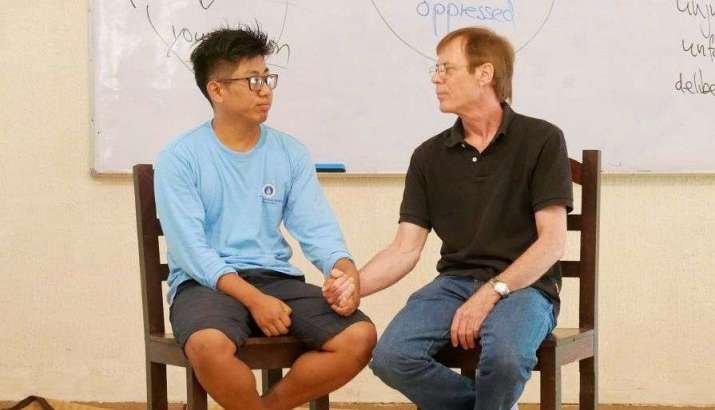
“Our traditions remind us that even in the height of chaos, crisis, and uncertainty, it is always possible to pause, to still one’s mind, and direct one’s attention to that which is wholesome and good in oneself, in others, and in the world,” said Mayer.
Donations to support the INEB Institute and SENS 2020 students can be made here.
* Kalyaṇa-mittata (Pali) kalyaṇa-mitrata (Skt.), the Buddhist concept of spiritual friendship.
See more
International Network of Engaged Buddhists
School of English for Engaged Social Service (SENS)
SENS School of English for Engaged Social Service (brochure of course details)
INEB Institute
How to support INEB Institute
INEB – International Network of Engaged Buddhists (Facebook)
The INEB Institute (Facebook)










